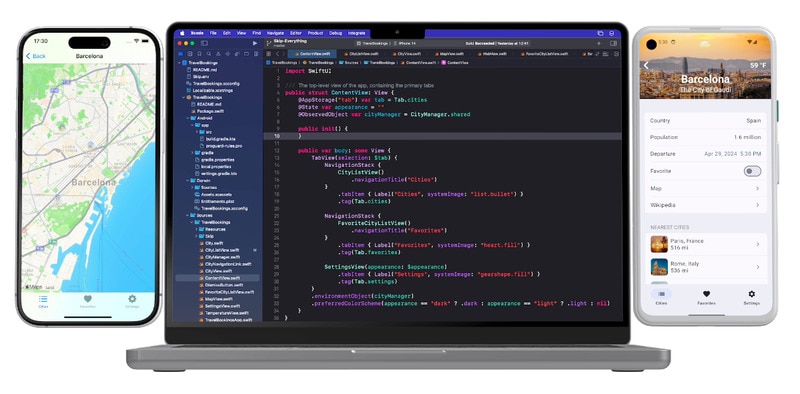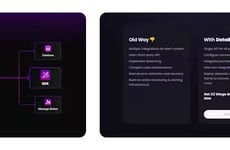
Skip Enables Native iOS & Android App Development Using Swift
Ellen Smith — March 3, 2025 — Tech
References: skip.tools
Skip is a cross-platform development tool that allows developers to write native apps for both iOS and Android using Swift. It leverages the familiar Xcode environment, enabling teams to write and manage code in a single, modern language while still delivering fully native experiences on both platforms.
By extending Swift’s capabilities to Android, Skip removes the need for separate codebases or learning platform-specific languages like Kotlin or Java. This approach can simplify development workflows, reduce code duplication, and improve consistency between iOS and Android versions of the same app. Skip is particularly relevant for teams already using Swift, allowing them to maximize existing expertise while expanding to Android users. It aims to offer a balance between cross-platform efficiency and native performance, avoiding compromises in user experience or app capabilities.
Image Credit: Skip
By extending Swift’s capabilities to Android, Skip removes the need for separate codebases or learning platform-specific languages like Kotlin or Java. This approach can simplify development workflows, reduce code duplication, and improve consistency between iOS and Android versions of the same app. Skip is particularly relevant for teams already using Swift, allowing them to maximize existing expertise while expanding to Android users. It aims to offer a balance between cross-platform efficiency and native performance, avoiding compromises in user experience or app capabilities.
Image Credit: Skip
Trend Themes
1. Unified Programming Languages - Bridging the gap between iOS and Android development through a single language approach can enhance efficiency and consistency.
2. Native Experience Optimization - Focusing on delivering native app experiences while using cross-platform tools allows developers to bypass traditional trade-offs in performance.
3. Simplified Development Workflows - Tools that reduce the complexity and redundancy of maintaining separate codebases can streamline the app development process significantly.
Industry Implications
1. Mobile Software Development - The integration of a unified language for dual-platform development presents a shift towards more cohesive coding strategies.
2. Tech Education - Educating developers on versatile languages like Swift can foster a more adaptable workforce well-versed in cross-platform capabilities.
3. App Lifecycle Management - Efficient code management via cross-platform development tools could revolutionize how apps are updated and maintained over time.
3.3
Score
Popularity
Activity
Freshness
























